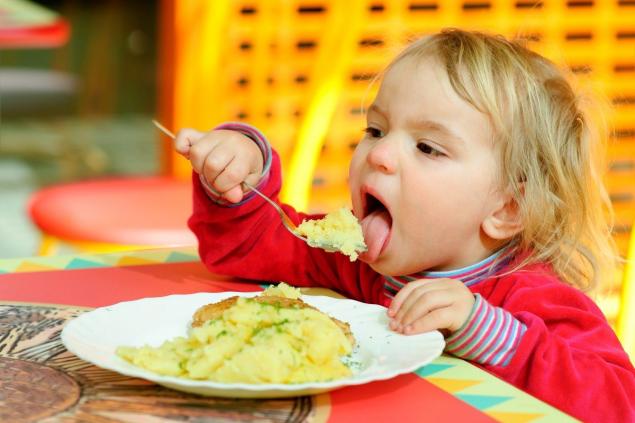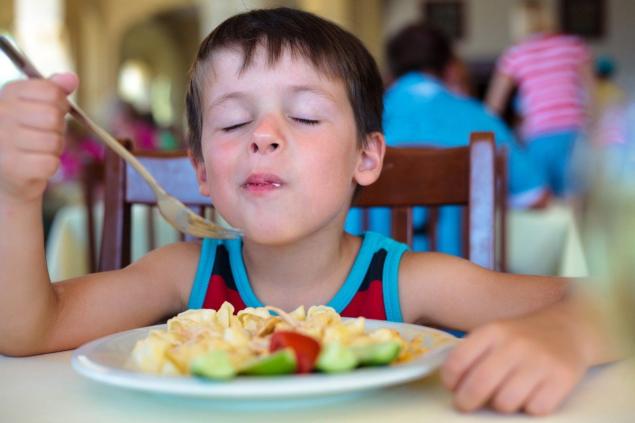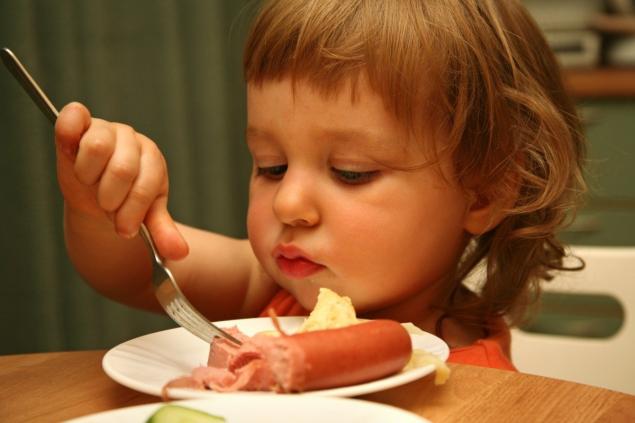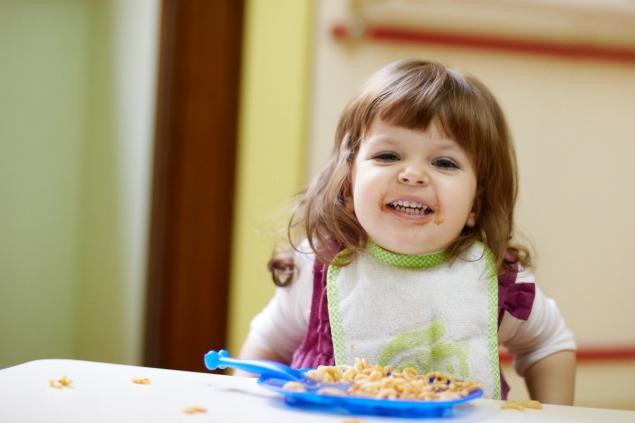155
Show your grandson what children eat in Italy if they are cranky and eat nothing
Recently we talked about how Italians raise children. And it was amazing to learn that the guys there grow up in an atmosphere of adoration and permissiveness, but eventually grow up to be quite adequate young people. Today we are going to talk about what nutrition In Italy, there is something to learn.

It is interesting that as such baby food in Italy does not exist. A child from an early age learns to eat the same as adults. And the most popular dish (at home, at school) is pasta. In other words, most often you have to eat all sorts of pasta with sauce and cheese.

There are few places where you can see a special “children’s” menu. Rather, the child can bring half the usual portion or serve spaghetti without “extra” additives.
And if mom and dad drink strong coffee, then do not be surprised if a three-year-old child will sit with a cappuccino and candy or a bun. But most often the child is served sausages or fries. It's considered baby food here.

Statistics show that more than 70% of small Italians at home eat pasta and rice, 45% agree to meat second meals and only 15% - fish. As a side dish, 18% use legumes, 24% - potatoes, 17% - other vegetables. About 30% of Italian children regularly eat cheese.
The problem of excess weight in children in Italy is quite acute. And if in the north and Sardinia babies eat more balanced and there only 25% of children have problems with overweight, in the southern regions, 40% of children acquire extra pounds.

Here it is worth noting that Italians are great culinary patriots who adore national and regional cuisine. And home cooking mothers and grandmothers are considered the ideal of delicious food. And always put it above any overseas dishes. In many ways, this attitude is instilled in childhood.

Feed small Italians passion and unhealthy food like fried potatoes, pizza, sweets and soda. And parents are in no hurry to protect their children from such food. Although in every possible way they manage to prepare homemade dishes so that the necessary vegetables or herbs are among the ingredients adored by the child.
For Italians, each meal is a special event and a ritual. They like to talk about food, discuss dishes at a meal or discuss what they are going to eat for dinner. Children also like to talk about food and go to cafes. The difference between children and adults in Italy is minimal.
It is surprising that with all the problems and unbalanced nutrition, little Italians, growing up, turn into rather slim young people without any problems with the digestive system.

On the other hand, why should these problems arise? We so often condemn eating the same pizza, but we forget how many of our grandmother’s pies we ate as children. Perhaps our eating habits are not much better than those of the Italians.

It is interesting that as such baby food in Italy does not exist. A child from an early age learns to eat the same as adults. And the most popular dish (at home, at school) is pasta. In other words, most often you have to eat all sorts of pasta with sauce and cheese.

There are few places where you can see a special “children’s” menu. Rather, the child can bring half the usual portion or serve spaghetti without “extra” additives.
And if mom and dad drink strong coffee, then do not be surprised if a three-year-old child will sit with a cappuccino and candy or a bun. But most often the child is served sausages or fries. It's considered baby food here.

Statistics show that more than 70% of small Italians at home eat pasta and rice, 45% agree to meat second meals and only 15% - fish. As a side dish, 18% use legumes, 24% - potatoes, 17% - other vegetables. About 30% of Italian children regularly eat cheese.
The problem of excess weight in children in Italy is quite acute. And if in the north and Sardinia babies eat more balanced and there only 25% of children have problems with overweight, in the southern regions, 40% of children acquire extra pounds.

Here it is worth noting that Italians are great culinary patriots who adore national and regional cuisine. And home cooking mothers and grandmothers are considered the ideal of delicious food. And always put it above any overseas dishes. In many ways, this attitude is instilled in childhood.

Feed small Italians passion and unhealthy food like fried potatoes, pizza, sweets and soda. And parents are in no hurry to protect their children from such food. Although in every possible way they manage to prepare homemade dishes so that the necessary vegetables or herbs are among the ingredients adored by the child.
For Italians, each meal is a special event and a ritual. They like to talk about food, discuss dishes at a meal or discuss what they are going to eat for dinner. Children also like to talk about food and go to cafes. The difference between children and adults in Italy is minimal.
It is surprising that with all the problems and unbalanced nutrition, little Italians, growing up, turn into rather slim young people without any problems with the digestive system.

On the other hand, why should these problems arise? We so often condemn eating the same pizza, but we forget how many of our grandmother’s pies we ate as children. Perhaps our eating habits are not much better than those of the Italians.
The story of a husband who turned out to be a serpent and did not meet from Poland
The lover of carrots told what easy dessert pampers the family























